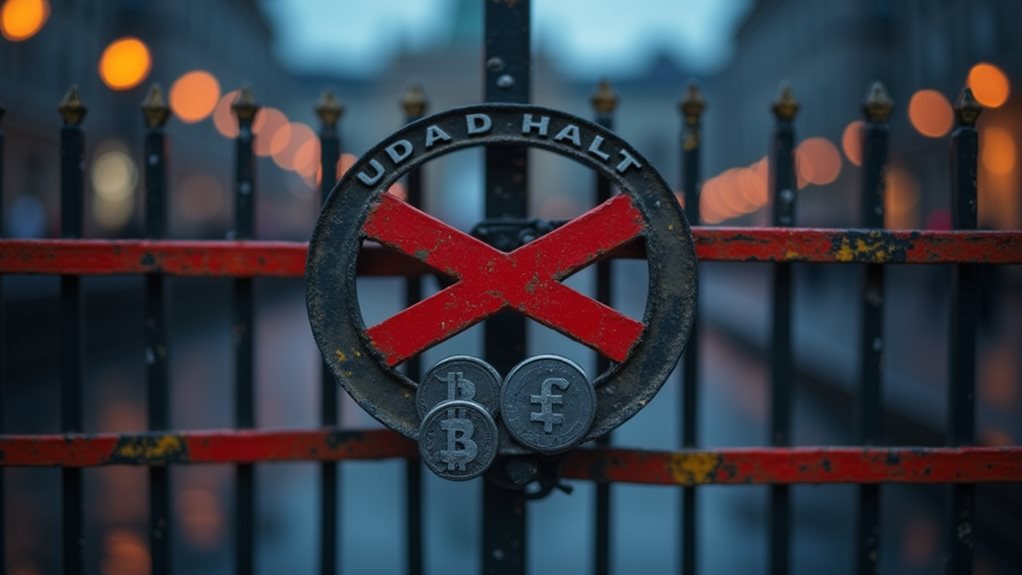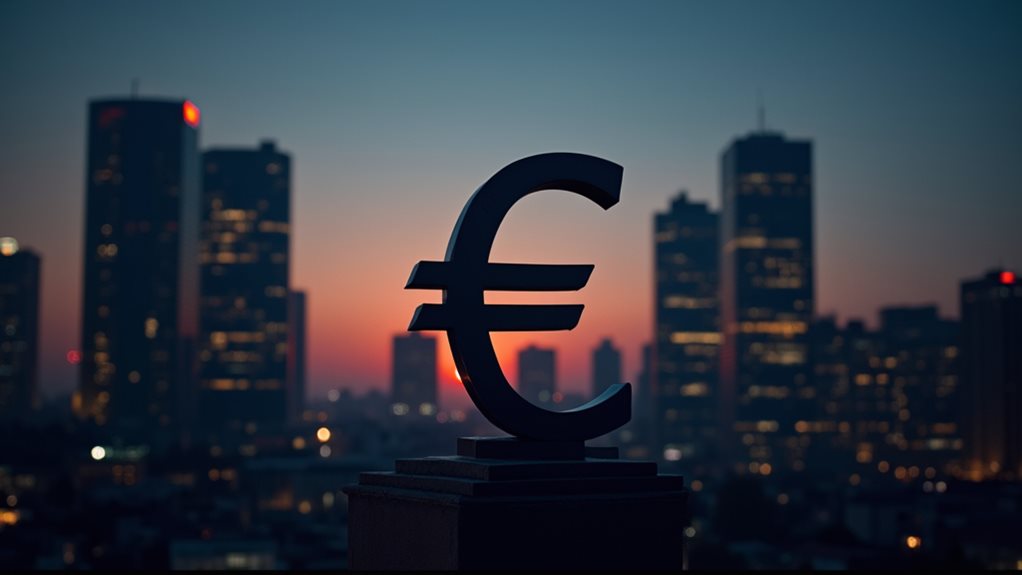Germany's financial watchdog BaFin isn't messing around with Ethena GmbH's USDe token. They've slammed the brakes on public sales, ordered asset reserves frozen, and demanded website closure – all due to "serious deficiencies" in MiCAR authorization. While Ethena's British Virgin Islands operations remain untouched, the German crackdown signals tougher times ahead for synthetic assets. The 5.4 billion USDe tokens in circulation? Well, that's just the tip of this regulatory iceberg.

Germany's financial watchdog BaFin slammed the door on Ethena GmbH's USDe token, halting all public sales of the synthetic dollar within German borders. The regulator didn't mince words, citing "serious deficiencies" in the company's authorization process under the EU's Markets in Crypto-Assets Regulation (MiCAR). Talk about a regulatory reality check.
The timing couldn't be more awkward. Ethena GmbH had just filed for MiCA authorization on July 29, 2024, hoping to squeeze through a transitional arrangement that would've let them keep operating. No such luck. BaFin ordered an immediate freeze on asset reserves and demanded the closure of Ethena GmbH's website. Ouch.
Here's the kicker – there are roughly 5.4 billion USDe tokens floating around, most issued before MiCAR kicked in. USDe has established itself as the third largest USD-pegged stablecoin in the market. The ban doesn't touch secondary trading or affect operations of Ethena Limited in the British Virgin Islands. Multiple global entities continue to facilitate minting and redemption operations across different jurisdictions. Clever structure, but not clever enough to dodge BaFin's scrutiny.
The real sticking point? Those pesky sUSDe tokens. BaFin suspects they're unregistered securities masquerading as crypto assets. The whole setup lets investors swap USDe for sUSDe tokens – a feature that raised more red flags than a May Day parade in Moscow.
Despite the German smackdown, Ethena's showing remarkable resilience. Users can still mint and redeem tokens through the BVI entity, and institutional investors haven't exactly run for the hills. The market seems to be shrugging it off like a minor inconvenience.
But let's be real – this is bigger than one company's regulatory headache. BaFin's move signals a new era of intense scrutiny for synthetic assets in the EU. The message is crystal clear: play by the rules or don't play at all.
For the crypto world, it's another reminder that the wild west days are fading faster than a summer sunset. The regulators aren't just watching – they're ready to drop the hammer.









